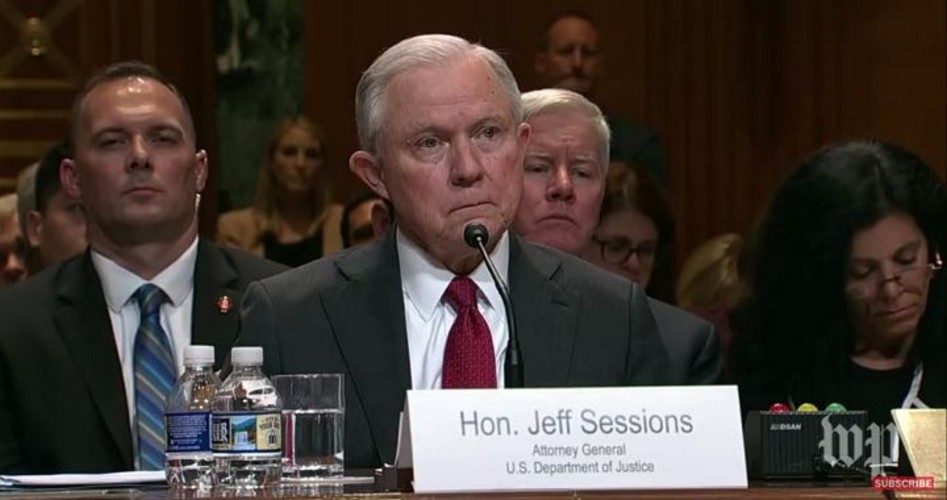
Attorney General Jeff Sessions (shown) issued a directive to immigration judges on May 17 telling them that they do not have the authority to suspend immigration proceedings indefinitely by what is called “administrative closure.”
In the directive, Sessions cited the Immigration and Nationality Act (INA), noting that under the INA, the Department of Homeland Security has the exclusive authority to decide whether and when to initiate deportation proceedings. Once DHS initiates proceedings, Sessions stated, immigration judges and the Board of Immigration Appeals must proceed “expeditiously” to resolve the case. Sessions quoted from a decision in a case, Matter of Roussis: “It has long been held that when enforcement officials of the Immigration and Naturalization Service [now DHS] choose to initiate proceedings against an alien and to prosecute those proceedings to a conclusion, the immigration judge is obligated to order deportation if the evidence supports a finding of deportability on the ground charged.”
A report in the Washington Times on May 17 noted administrative closure was a common tactic employed by immigration court judges during the Obama administration and was used to protect low-priority illegal immigrants from deportation.
Rather than pursue those cases, observed the Times, government attorneys would propose — and judges would grant — administrative closure by transferring more than 215,000 cases to the suspension list in what analysts said became a de facto amnesty. Added to some 690,000 other pending cases, the immigration court has a backlog of more than one million cases.
In his directive, Sessions declared an end to the policy of administrative closure and ordered that judges must decide the cases in front of them rather than rely on that process. “No attorney general has delegated such broad authority, and legal or policy arguments do not justify it. I therefore hold that immigration judges and the Board [of Immigration Appeals] lack this authority except where a previous regulation or settlement agreement has expressly conferred it,” Sessions said.
Sessions’ directive was posted under the heading: “Matter of CASTRO-TUM, Respondent.” Reynaldo Castro-Tum was apprehended crossing the border illegally in 2014, when he was 17 years old. He was sent to live with his brother-in-law while he awaited deportation and was supposed to come back for his hearing. He ignored all five summonses sent from the court to his brother-in-law’s address. Rather than order him deported in absentia, the immigration judge granted an administrative closure, effectively giving him amnesty from deportation.
Image of Jeff Sessions: Screenshot from a Washington Post youtube video
Related articles:
Obama Left a Backlog of More Than a Half-million Illegal Aliens
GAO Says Immigration Courts Have Backlog of 437,000 Deportation Cases — Scheduled to 2022
Obama Admin. Blames Bush-Era Law for Failure to Deport Illegals
DHS: Flow of Illegal Immigrants Encouraged by U.S. Failure to Deport
Obama Administration’s Futile Response to Illegal Immigrant Minors
Obama Administration Weakens Illegal Immigration Enforcement
Report: Obama Immigration Policy Partly Responsible for Deaths of Americans



